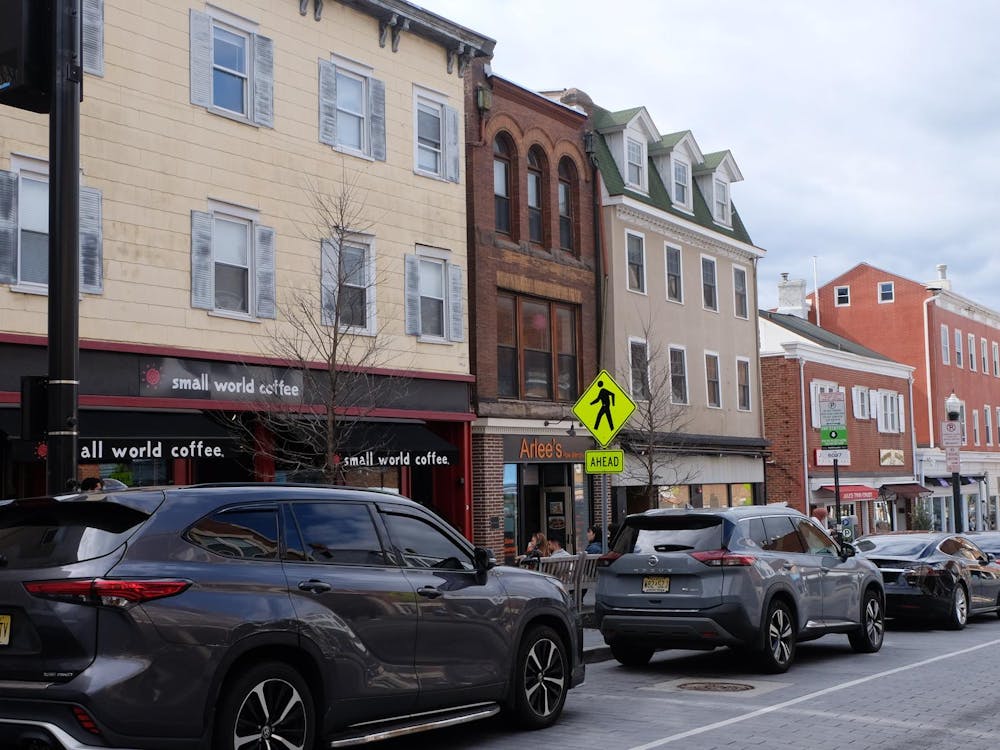With episodes on hot-button subjects like microaggressions, Barack Obama’s presidential legacy, or the use of the N-word, the new podcast “Woke Wednesdays” does not shy away from controversy. Co-founder William Pugh '20 explained that the club finds value in controversy because there isn't enough dialogue about controversial issues.
Pugh is a member of the Editorial Board of the ‘Prince.’
Marketing manager Jonathan Haynes '20, who joined the group after the podcasts began at the end of February, added that the point of Woke Wednesdays is not to present a consensus, but to spark a discussion. The club, which has a largely black membership, deliberately chooses topics “that have a range of opinions within the black community,” Haynes explained. Pugh emphasized that the team “doesn’t want all our conversations to be tailored towards clearing muddy water.”
Many college students develop their views on hot-button topics through late-night discussions about current events tucked away in dorm rooms or across dinner, but for some freshmen, this is not enough. Feeling that there was a need for a space in which University students could engage in informal conversations about contemporary social issues, particularly those which affect black students, Pugh and friend Kadence Mitchell ’20 began one of the University’s newest student groups, Woke Wednesdays.
Following the election, Pugh considered just using Facebook Live once a week to discuss the issues on his mind, but after talking to Mitchell, the two instead conceived the project as a podcast. Pugh and Mitchell then assembled a team of approximately eight individuals as a diverse and intersectional group.
Each podcast takes the format of a round table discussion, where Pugh or Mitchell are joined by additional undergraduates. Most participants are freshmen, and repeat panelists include June Philippe ’20, Toyin Edogun ’20, Tomi Lawal ’20, Micaela Keller ’20, and Matthew Oakland ’20.
The podcast also includes a special guest from the University’s faculty. Recent guests have included Professor of African American Studies Imani Perry and Ph.D. candidate in Anthropology and African American Studies Heath Parson. According to Pugh, it is often difficult to accommodate each co-host’s busy schedule, so the half-hour show is typically recorded early in the morning in the Lewis Library recording studio.
Following each recording session, the program is edited by the club’s sound engineer Nathan Poland ’20, who has also been a panelist, and is then sent to each co-host. From this cut, all involved can then suggest edits in order to determine the shape of the final podcast, which is released every other Wednesday evening, approximately one week after taping.

Woke Wednesdays is driven by the recognition of a multiplicity of opinions on the definition of “wokeness.”
Being woke is fighting "against ignorance and . . . actively seek[ing] to engage in conversation…[and] to be open to other ideas and to recognize undeniable truths about society as a whole,” Haynes said. Pugh added that “wokeness” is, in addition to a sense of social awareness, a sort of introspection, and is about a recognition that “it’s okay to be challenged” on certain viewpoints.
Haynes said Woke Wednesdays is constantly relevant because “staying woke” and engaging in these sorts of discussions is an active process. Pugh describes Woke Wednesdays as a program for the entire University campus and even the wider world. According to him, there has been positive response to the podcast and “even those who disagree [with the views expressed on the show] … nevertheless find value in having the conversation.”
In that vein, he describes expanding the podcast’s audience as the club’s next project. Currently, the podcast has approximately 150 likes on its Facebook page, and each episode has been listened to between 40 and 200 times, with the exception of the first episode, which has been played nearly 350 times.

The production team has a grand vision for the show.
Haynes said he wants the show to be "the go-to place for these sorts of conversations on campus.” He added that the focus of the podcast is to spur discussion so that the conversation continues after the podcast is over.
As it looks to achieve this goal, Woke Wednesdays has gained official recognition through USG, written a constitution, and plans to expand its online presence through an official website. Pugh also hopes to recruit a more diverse range of panelists on the show by reaching out to various identity groups on campus, in order to bring about his mission to provide a “platform for numerous voices to be heard on campus and a medium to share ideas.”
Ultimately, Pugh hopes that these elements, as well as an expanded membership, will combine to make a more robust Woke Wednesdays possible. He envisions a three-part podcast, the first part of which would include a student guest, the second a faculty or visiting guest, and the third would be a debrief with the regular co-hosts.
“It would be awesome to have Colin Kaepernick or [another guest] depending who’s on campus,” Pugh said of whom he’d like as a guest one day on the show.
The Woke Wednesdays team’s day-to-day goals are more modest, they explained. They plan to reach out to a wider audience with an increased social media presence and to put up print ads around campus. However, for them, it is not just about gaining the largest readership possible. It is, as Haynes remarks, about growing, both “mentally” and “consciously.”







